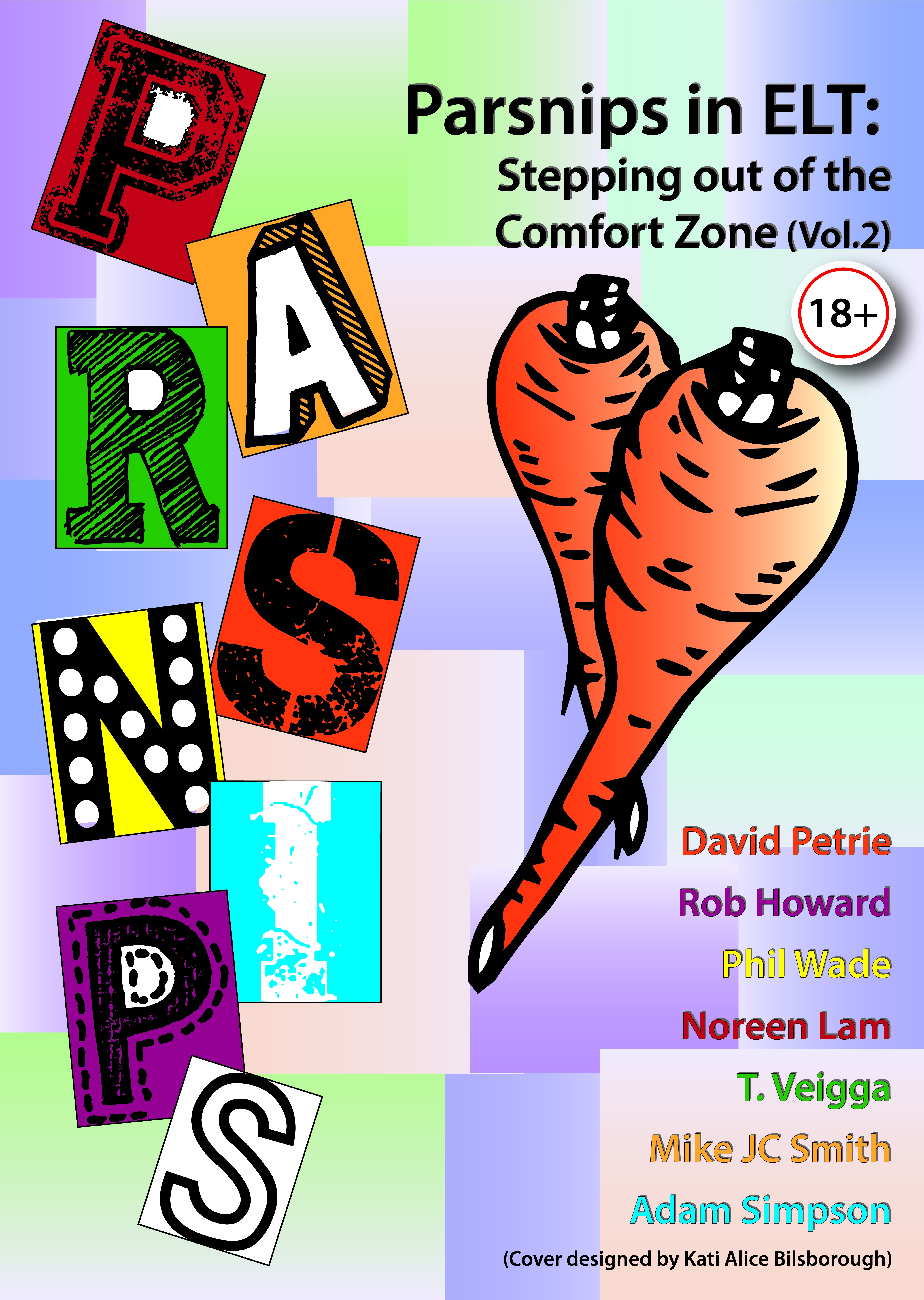 On my last post, I suggested that the best way to focus on students’ learning is by focusing on teaching. The rationale behind this is that we can’t control someone else’s actions or thoughts, but we can control our own. This means that if we pay attention to what we can actually do in order to make learning more effective, we’ll end up being a lot more helpful to our learners than by trying out many different techniques and methods just because they are (or have become) mainstream. We still can’t fully understand how we learn, what really happens in our brains apart from the synapses and all the wiring in the brain. We may come to the point in which data, not guesses (even educated ones), will be the driving force behind our actions. However, until then, we might be better off by thinking and reflecting on our teaching practices and on what happens in our classrooms, with our learners, than by trying out the next big thing. The first thing teachers should learn is that what they do matters. If teachers don’t believe this, they’re in the wrong place. But just how much does it really matter? How can we measure educational success? Neil Mercer says that,
On my last post, I suggested that the best way to focus on students’ learning is by focusing on teaching. The rationale behind this is that we can’t control someone else’s actions or thoughts, but we can control our own. This means that if we pay attention to what we can actually do in order to make learning more effective, we’ll end up being a lot more helpful to our learners than by trying out many different techniques and methods just because they are (or have become) mainstream. We still can’t fully understand how we learn, what really happens in our brains apart from the synapses and all the wiring in the brain. We may come to the point in which data, not guesses (even educated ones), will be the driving force behind our actions. However, until then, we might be better off by thinking and reflecting on our teaching practices and on what happens in our classrooms, with our learners, than by trying out the next big thing. The first thing teachers should learn is that what they do matters. If teachers don’t believe this, they’re in the wrong place. But just how much does it really matter? How can we measure educational success? Neil Mercer says that,
The educational success students achieve is only partly under their own control, and only partly under the control of their teachers. This is where the sociocultural concept of ‘scaffolding’ … is useful. The essence of this concept, as developed by Bruner (1986), Wood (1988) and others, is that an effective teacher provides the kind of intellectual support which enables learners to make intellectual achievements they would never accomplish alone; and one way they do so is by using dialogue to guide and support the development of understanding. (Neil Mercer – Language for teaching a language)
Scaffolding is what allows learners to grow. But each learner may need a different kind of scaffolding. Can you figure it out?
Apparently, the concept of conversation-driven lessons and scaffolding goes a long way. But who would have argued against that? It is not hard to think about our own learning experiences, the ones in which we had a good teacher by our side. This, by the way, is one of the topics that sparks teachers’ interest in training sessions – reflecting about their own learning experiences. When we think about our own learning experiences, when we have the benefit of hindsight, it’s a lot easier to see what has truly made a difference and what was only fun. How many are able to think back of a funny teacher whose teaching didn’t really stick, or a funny teacher whose lessons are so ingrained that you find it hard to separate the person from the classes? It’s not humour that is the defining factor for successful or unsuccessful teachers. At the end of the day, what truly matters is how much effort and attention you’ve put into that lesson of yours, and how thoughtful you’d been when planning the lesson for those specific learners. What matters is how often you reflected on the activities that you tried out in classes and the effect these activities had on each one of those students sitting there in front of you – or next to you if you’re that lucky.
This is one of the most important lessons I’ve learnt as a teacher. Being a teacher means caring about the time and effort your students are putting in by being there in front of you. I may not be the sole responsible for their learning, but I can’t shun the responsibility of being partly responsible for their learning. When this thought dawns on new teachers, they stop asking questions such as, “but why would I do that when most students just don’t seem to care?” or “why don’t they learn it if I taught them?” We do what we do because we are aware of our role and we are to be held accountable for all the things we choose to do in a class. And if students don’t seem to learn what you’ve taught them, perhaps it’s time you started reflecting a bit more about what you could do to help them instead of asking questions you can’t possibly answer.
Being accountable for what we do also means coming to terms with our own shortcomings. This is the moment you start thinking about developing and becoming a better professional. Accountability can do many things for you – one of them is helping you decide what kind of a teacher you want to be. Are you the kind that looks for excuses elsewhere, or are you able to look into your own world and find out what’s wrong? Are you capable of teaching the same subject differently to better help each group of learners, or will you simply do things the way you’ve always done and blame students for their not learning as effectively? Being a teacher means being on the move. How far are you willing to go?
*Neil Mercer – Language for teaching a language – in English Language Teaching in its Social Context
This reprint is used with permission from our friend and guest blogger Henrick Oprea from March 6th, 2014.
 Henrick Oprea has been working in ELT since 1997. He is based in Brasília, where he works as the head of the ELT department at Colégio Seriös. He also works as an independent consultant, and his main areas of interest are teacher training, language development and exam lessons. He is the current first vice-president of BRAZ-TESOL and he is also an associate of the iTDi. He’s got a post-graduation degree from the University of Birmingham. He believes that teachers are the ones who make the difference in any classroom, and this is why he is keen on sharing. He blogs about education and ELT at http://hoprea.wordpress.com, and you can also find him on Twitter, Facebook and Instagram, where he occasionally shares pictures of boards from his classes.
Henrick Oprea has been working in ELT since 1997. He is based in Brasília, where he works as the head of the ELT department at Colégio Seriös. He also works as an independent consultant, and his main areas of interest are teacher training, language development and exam lessons. He is the current first vice-president of BRAZ-TESOL and he is also an associate of the iTDi. He’s got a post-graduation degree from the University of Birmingham. He believes that teachers are the ones who make the difference in any classroom, and this is why he is keen on sharing. He blogs about education and ELT at http://hoprea.wordpress.com, and you can also find him on Twitter, Facebook and Instagram, where he occasionally shares pictures of boards from his classes.










there’s a huge difference between testing and teaching…the teacher is there to teach, not to test the student…this can be very difficult during one-to-one lessons…I really don’t like putting my students on spot…since the learner doesn’t have the back-up of the group, one of the big challenges is to find ways how to make the student-teacher dialogues more natural without making the student feel like he’s being tested…very often the students feel like it’s their failure if they don’t know the answer, I feel like it’s mine…
LikeLiked by 1 person
I agree Barbara. Thanks for sharing.
LikeLike
[…] a previous blog post on this site, Henrick Oprea wrote about how teachers can’t take responsibility for learning, only responsibility for […]
LikeLike